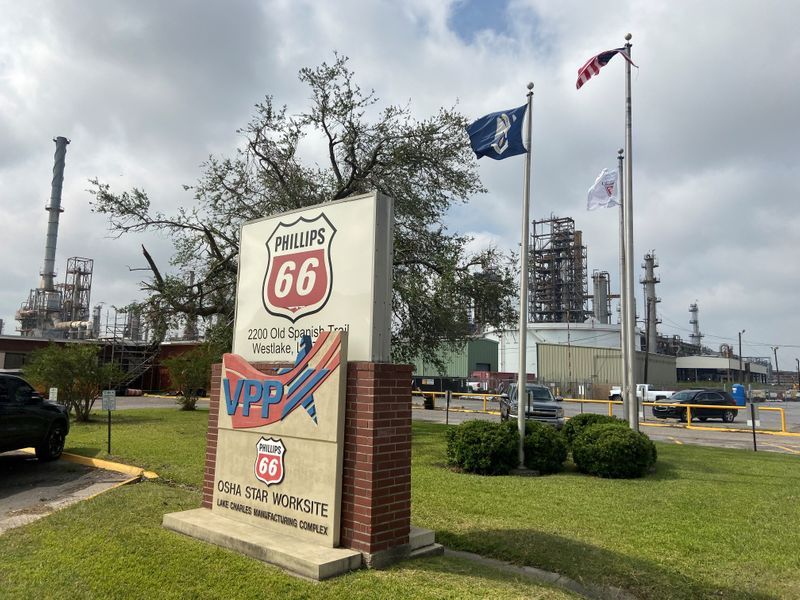By Laura Sanicola and Erwin Seba
NEW YORK/HOUSTON (Reuters) - U.S. oil refiners are predicting a strong recovery in fuel demand in the second half of this year as vaccination rates increase and workers are expected to resume commuting and taking vacations.
But oil processors appear to be skimping on routine spring overhauls that typically prepare refineries for peak summer output. Maintenance cutbacks could make it hard to boost output as the economy recovers from its pandemic-related contraction.
U.S. plants are running at about 82% of capacity, according to U.S. government data, down about 10 percentage points from normal capacity at this time of year. Margins on average are positive on each barrel of oil processed, but refiners are losing money on output as crude prices rise faster than demand for fuel.
"Certainly by summer, we would expect that a good portion of the American public is able to get out and burn the fuels that we make," Robert Herman, an executive vice president at fourth-largest U.S. refiner Phillips 66 (NYSE:PSX), told investors last week. His view of a second-half demand recovery was echoed recently by executives at Valero Energy Corp (NYSE:VLO) and LyondellBasell Industries (NYSE:LYB).
Top U.S. oil refiners Marathon Petroleum Corp (NYSE:MPC) and Exxon Mobil Corp (NYSE:XOM) have signaled production could remain down more because of lower fuel demand than because of planned maintenance shutdowns in the early part of the year. Exxon said its turnaround costs would rise this quarter.
For a graphic on refinery utilization, click https://graphics.reuters.com/REFINERIES-OPERATIONS/TURNAROUNDS/dgkplknyovb
'CATCH UP' IS COMING
But Marathon forecast first-quarter spending of $150 million on planned maintenance, less than half its year-ago period budget. Phillips 66 estimated $200 million to $230 million in turnaround costs this quarter, versus $329 million a year ago.
Lower costs could reflect reduced stress from lower output on equipment, or stretching out work and limiting overtime, said Matthew Blair, a refining analyst at Tudor, Pickering, Holt & Co.
"But turnarounds were low in 2020. It does seem like there will need to be a catch-up at some point," said Blair.
Early spring and fall traditionally are busy periods for U.S. refinery maintenance, as operators gear up for summer driving demand and switch to making more heating oil and winter gasoline blends. Regular overhauls also are needed to ensure safety.
Production will fall when maintenance begins, said Bob Yawger, director of futures for financial firm Mizuho Americas. He forecast fuel output falling another 6.5 percentage points from January's 82.5% peak utilization.
"No matter how you cut it, turnaround season is simply a matter of time," Yawger said on Jan. 27. "How far the refinery run rate slides is the only question."
Refiners conducting spring maintenance would be building crude oil inventories and drawing down fuel stocks by now, "and that's not happening," he said this week.
WILL SHUTDOWNS SPREAD?
Some refiners have begun shutting down units for maintenance.
Citgo Petroleum shut the large gasoline-producing fluidic catalytic cracker (FCC) on Jan. 15 at its Corpus Christi, Texas, refinery for about a month, sources told Reuters.
Lyondell's Houston refinery shut a crude distillation unit (CDU) on Monday for an at least three-week overhaul that also will affect coker and hydrotreater units needed to process feedstocks into fuel.
Cokers convert residual crude from distillation units into either feedstock for motor fuels or petroleum coke, a coal substitute. Hydrotreaters remove sulfur from gasoline in compliance with U.S. environmental rules.

Marathon plans to shut the FCC at its Galveston Bay Refinery in Texas City, Texas, this month for about six weeks.